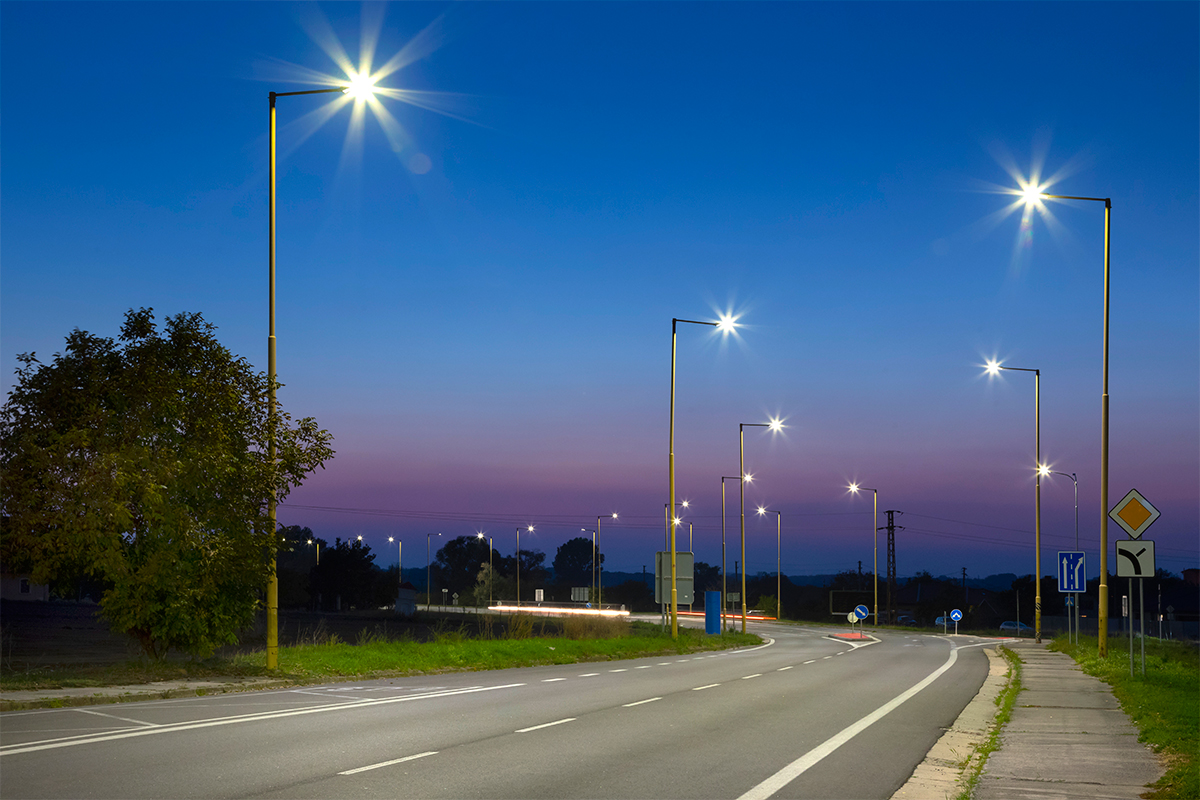MORGANTOWN — The state Public Service Commission has approved rates for LED outdoor lights for customers that provide outdoor lighting – essentially state and local governments.
But they’re not the rates Mon Power and its FirstEnergy sister company Potomac Edison asked for in June and were discussed at a Sept. 16 public hearing. PSC said the proposed rates and a proposed up-front replacement charge were too high.
The PSC order issued Wednesday sets out a lower tariff – a rate schedule – that the companies must adopt. The approved rates took effect Thursday and the companies had 30 days from the date of the order to modify their rate schedules.
In stuff official language, PSC said in its order, “The commission approves a modified tariff in recognition of the importance of the prudent use of energy so that customers can enjoy the benefits and comforts of energy consumption in a responsible and efficient way. Encouraging widespread use of LED lights is in the public interest because LED lights consume less energy and use electricity efficiently.”
Case background
As previously reported, the companies wanted to charge a higher monthly rate for the LEDs than for the other forms of outdoor lighting – mercury vapor (no longer produced), metal halide and high-pressure sodium – that are less efficient and more costly.
Their rationale was that they need to recoup the actual costs of the existing lighting that would be replaced before the end of its useful life.
The companies also wanted to charge $149.39 up front for each replacement LED “luminaire,” which is a unit consisting of a fixture and bulb. They similarly argued that the cost of the original luminaire has to be recouped and the cost should fall to the customer.
Two consumer advocate groups – Energy Efficient West Virginia and West Virginia Citizen Action Group – objected to the proposed rates saying they were unreasonably high and would discourage cities and other customers from switching from older style lighting to cheaper and more efficient LEDS. They joined the case as intervenors and provided testimony.
The PSC order
PSC agreed with the consumer groups’ arguments, saying in its order, “Removal of the companies’ proposed conversion charge disincentive and approval of lower rates will reduce budget barriers and provide an incentive to encourage the use of more energy efficient lighting.”
The rate schedule is too lengthy to present in full but a couple examples will illustrate the PSC changes.
For a particular 4,000 lumen 50-watt luminaire, the companies proposed to charge $10.76 per lamp; PSC approved $6.65 per lamp. For a particular 5,000 lumen 90-watt lamp, the companies proposed $28.91 apiece; PSC approved $17.07 per lamp.
If, for example, a city wanted to replace 200 50-watt lamps, the approved rates will save it $822 per month over the companies’ proposal, along with $29,878 in up-front charges.
Mon Power could not be reached for comment in time for this report.
Energy Efficient West Virginia celebrated the decision in a press release. It noted that LEDs have lower maintenance costs and use less power than older lighting. It cited a U.S. Department of Energy estimate that within five years upwards of 90% of all outdoor lights installed will be LED.
It explained that the PSC chose to base the rates on how much energy the light uses, rather than as a percentage of the cost of the light itself.
The PSC “helped municipalities and their taxpayers lower utility costs,” said Emmett Pepper, executive director of Energy Efficient West Virginia “Municipalities in areas where Mon Power and Potomac Edison operate will be able to utilize modern lighting technology to cost-effectively meet their needs.”
Tweet David Beard@dbeardtdp Email dbeard@dominionpost.com




